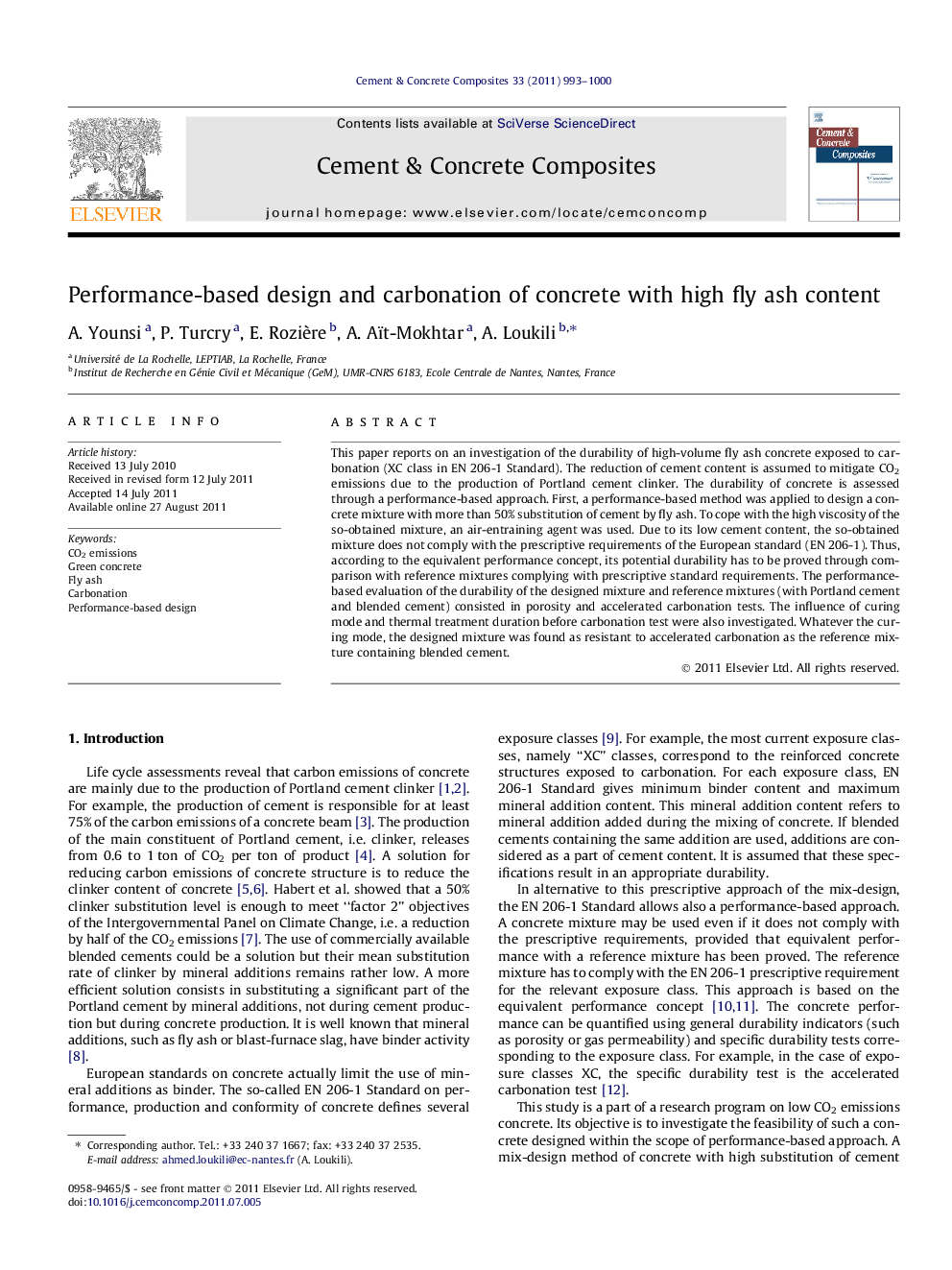| Article ID | Journal | Published Year | Pages | File Type |
|---|---|---|---|---|
| 1455278 | Cement and Concrete Composites | 2011 | 8 Pages |
This paper reports on an investigation of the durability of high-volume fly ash concrete exposed to carbonation (XC class in EN 206-1 Standard). The reduction of cement content is assumed to mitigate CO2 emissions due to the production of Portland cement clinker. The durability of concrete is assessed through a performance-based approach. First, a performance-based method was applied to design a concrete mixture with more than 50% substitution of cement by fly ash. To cope with the high viscosity of the so-obtained mixture, an air-entraining agent was used. Due to its low cement content, the so-obtained mixture does not comply with the prescriptive requirements of the European standard (EN 206-1). Thus, according to the equivalent performance concept, its potential durability has to be proved through comparison with reference mixtures complying with prescriptive standard requirements. The performance-based evaluation of the durability of the designed mixture and reference mixtures (with Portland cement and blended cement) consisted in porosity and accelerated carbonation tests. The influence of curing mode and thermal treatment duration before carbonation test were also investigated. Whatever the curing mode, the designed mixture was found as resistant to accelerated carbonation as the reference mixture containing blended cement.
► A method is proposed to design concrete mixtures with low content of Portland cement. ► Portland cement is partially substituted by fly ash. ► The substitution of Portland cement results in CO2 emissions reduction. ► We studied the designed mixtures with a performance-based approach. ► The designed mixtures were found as resistant to carbonation as reference mixtures.
